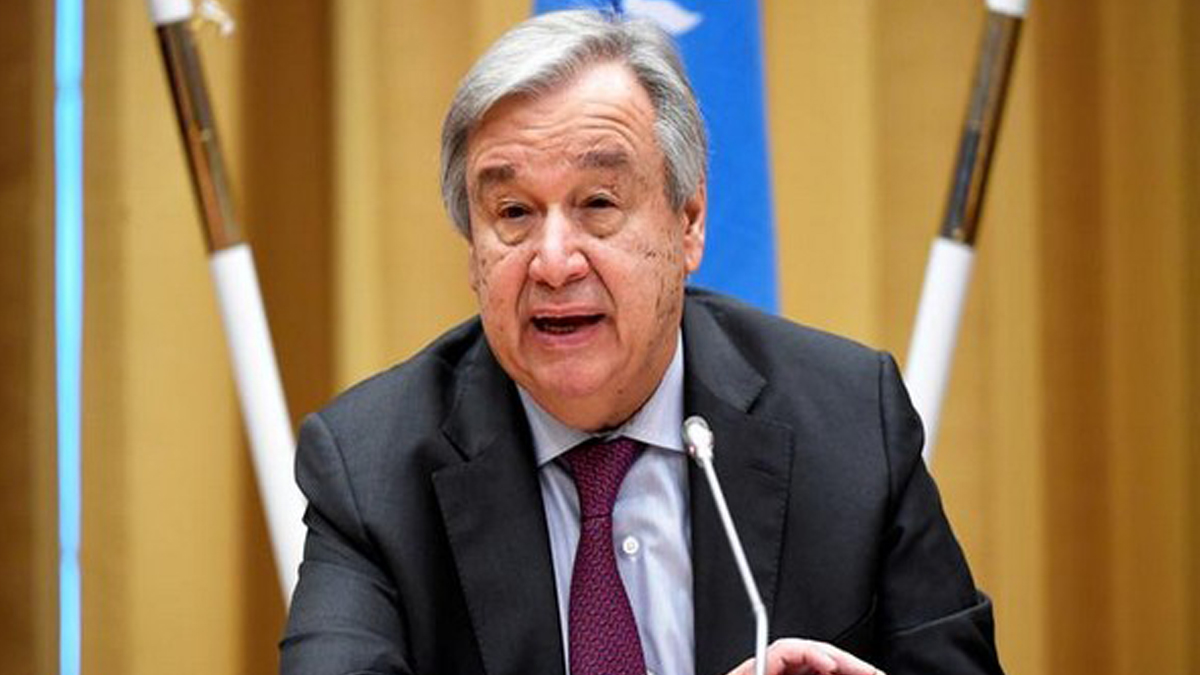
World needs to wake up to impending climate disaster: Guterres

NEW YORK: The U.N. Secretary-General said that the world is racing toward a climate disaster but refuses to wake up, as he took aim at the fossil fuel industry for being at the epicenter of the climate crisis.
“Current policies are taking the world to a 2.8-degree temperature rise by the end of the century,” Antonio Guterres told reporters at the United Nations after he met with civil society climate advocates. “That spells catastrophe, yet the collective response remains pitiful.”
Under the 2015 Paris climate agreement, countries made commitments to limit global temperature increase to 1.5 degrees Celsius above pre-industrial levels. To achieve this, U.N. climate scientists say greenhouse gas emissions must peak before 2025 and decline 43% by 2030.
“Let’s face facts. The problem is not simply fossil fuel emissions, it is fossil fuels — period,” Guterres said. “The solution is clear: The world must phase out fossil fuels in a just and equitable way — moving to leave oil, coal and gas in the ground where they belong — and massively boosting renewable investment in a just transition.”
The secretary-general said he was not attacking oil and gas companies, but rather urging them to use their existing technologies, capacities and resources to be leaders in the transition to renewable energy.
“I encourage fossil fuel companies that are now having massive profits to use their profits and to lead the investment in renewables and in the green economy,” he said. “That would mean they would be able to survive the transition and remain very important and relevant actors in the world economy.”
Guterres emphasized that the oil and gas industry had a record $4 trillion net income in 2022, but for each dollar it spent on drilling and exploration, only 4 cents went to clean energy and carbon capture.
He acknowledged that the transition away from fossil fuels will not happen overnight, but it is within reach if governments commit to measures, including no new coal and phasing it out completely by 2030 in the 38 countries that make up the Organization for Economic Cooperation and Development and 2040 everywhere else.
He also urged an end to the licensing or funding of new oil and gas, halting the expansion of existing reserves and shifting subsidies from fossil fuels to renewables.
With just five months to go until leaders meet at the next U.N. climate review conference, known as COP28, which will take place in Dubai, the U.N. chief is seeking robust commitments, especially from G20 nations — composed of the largest economies in the world and are among the biggest emitters.
(VOA)













Comments